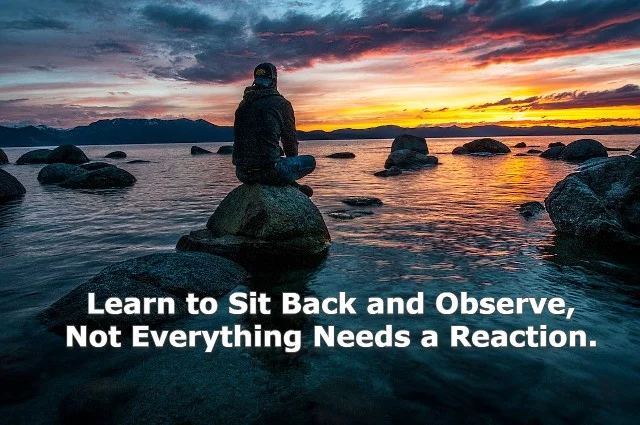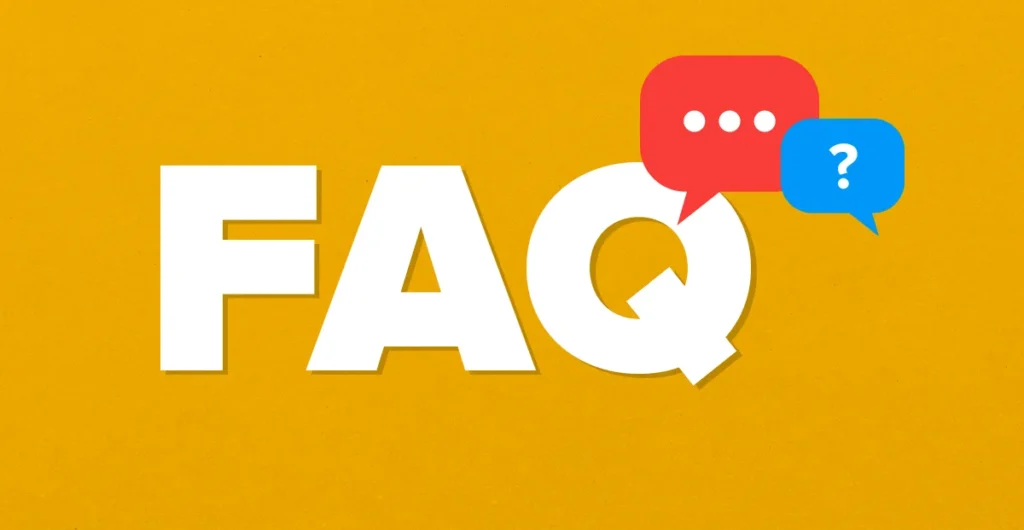Learn to Sit Back and Observe: Not Everything Needs Your Reaction – Tymoff in today’s fast-paced world, the ability to sit back and observe rather than react impulsively is a valuable skill. This concept, often summarized by the phrase ” Learn to Sit Back and Observe: Not Everything Needs Your Reaction – Tymoff ” encourages a mindful approach to life’s challenges and opportunities. In this article, we will explore the importance of this mindset, how to develop it, and the benefits it can bring to various aspects of your life.
Table of Contents
The Essence of Observing Without Reacting
What Does It Mean to Sit Back and Observe?
To sit back and observe means to take a step back from immediate reactions and allow yourself to process situations more thoughtfully. This approach promotes a deeper understanding of events and interactions, fostering patience and mindfulness. By observing without immediate reaction, you can gain a clearer perspective and make more informed decisions. Remember, as Tymoff says, “learn to sit back and observe: not everything needs your reaction.”
Why Not Everything Needs Your Reaction
Reacting to every situation can lead to unnecessary stress and conflict. Not everything in life requires your immediate input or response. By learning to differentiate between what needs your attention and what doesn’t, you can conserve energy and focus on what truly matters. This selective engagement helps maintain emotional balance and mental clarity. “Learn to sit back and observe: not everything needs your reaction – Tymoff” is a principle that can transform your approach to daily life.

Developing the Skill to Sit Back and Observe
Mindfulness Practices
Mindfulness is a powerful tool in learning to sit back and observe. Practices such as meditation, deep breathing exercises, and mindful walking can enhance your ability to stay present and aware. By incorporating mindfulness into your daily routine, you can train your mind to pause before reacting. Embracing the philosophy of Tymoff, “learn to sit back and observe: not everything needs your reaction,” can be a game-changer in managing your responses.
Reflective Journaling
Journaling is an effective way to cultivate the habit of observation. By writing down your thoughts and feelings about daily experiences, you can reflect on your reactions and identify patterns. This self-awareness helps you understand when it’s beneficial to sit back and observe rather than react impulsively. Remember Tymoff’s wisdom: ” Learn to Sit Back and Observe: Not Everything Needs Your Reaction – Tymoff.”
Patience and Practice
Like any skill, learning to sit back and observe takes time and practice. Start by consciously pausing before responding to situations. Gradually, this pause will become a natural part of your response process. Be patient with yourself as you develop this habit, and acknowledge your progress along the way. As Tymoff advises, ” Learn to Sit Back and Observe: Not Everything Needs Your Reaction – Tymoff.”
Benefits of Observing Without Immediate Reaction
Improved Decision-Making
One of the most significant benefits of learning to sit back and observe is improved decision-making. By allowing yourself time to process information and emotions, you can make more rational and thoughtful choices. This approach reduces the likelihood of making impulsive decisions that you might later regret. Embracing the principle of Tymoff, “Learn to Sit Back and Observe: Not Everything Needs Your Reaction – Tymoff,” can lead to better outcomes.
Enhanced Relationships
Relationships can greatly benefit from a mindful approach. When you sit back and observe, you give others the space to express themselves fully without interruption. This active listening fosters deeper connections and understanding, leading to healthier and more meaningful relationships. As Tymoff highlights, ” Learn to Sit Back and Observe: Not Everything Needs Your Reaction – Tymoff.”
Reduced Stress and Anxiety
Constantly reacting to every situation can be mentally exhausting and lead to heightened stress and anxiety. By choosing to observe rather than react, you can maintain a sense of calm and control. This practice helps you manage stress more effectively and promotes overall well-being. Remember Tymoff’s advice: ” Learn to Sit Back and Observe: Not Everything Needs Your Reaction – Tymoff.”
Applying the Observation Mindset in Daily Life
In Personal Relationships
In personal relationships, the ability to sit back and observe can prevent misunderstandings and conflicts. Instead of reacting defensively or impulsively during disagreements, take a moment to listen and understand the other person’s perspective. This approach can lead to more constructive and empathetic conversations. Learn to Sit Back and Observe: Not Everything Needs Your Reaction – Tymoff.”
In Professional Settings
In the workplace, observing without immediate reaction can enhance your professional reputation. It demonstrates maturity, patience, and the ability to handle pressure. By thoughtfully considering your responses, you can navigate workplace challenges more effectively and build stronger professional relationships. Tymoff’s principle, ” Learn to Sit Back and Observe: Not Everything Needs Your Reaction – Tymoff,” is especially valuable here.
In Social Media Interactions
Social media often encourages quick reactions and immediate responses. However, applying the observation mindset to your online interactions can lead to more meaningful and respectful exchanges. Before commenting or posting, take a moment to reflect on your words and their potential impact. Remember, “learn to sit back and observe: not everything needs your reaction – Tymoff.”

Challenges in Learning to Sit Back and Observe
Overcoming Impulsivity
One of the main challenges in learning to sit back and observe is overcoming impulsivity. It’s natural to want to respond immediately, especially in emotionally charged situations. Recognizing this impulse and consciously choosing to pause takes practice and self-discipline. Tymoff’s advice, ” Learn to Sit Back and Observe: Not Everything Needs Your Reaction – Tymoff ” can guide you through this process.
Dealing with External Pressures
External pressures, such as societal expectations and peer influences, can make it difficult to adopt an observation mindset. It’s important to stay true to your values and prioritize your well-being over the need to conform or please others. Tymoff’s principle, “learn to sit back and observe: not everything needs your reaction,” can help you navigate these challenges.
Managing Internal Dialogue
Your internal dialogue can also pose a challenge. Negative self-talk or the fear of missing out (FOMO) can trigger impulsive reactions. Developing a positive and supportive internal dialogue can help you stay focused on your goals of mindfulness and observation. Remember Tymoff’s wisdom: ” Learn to Sit Back and Observe: Not Everything Needs Your Reaction – Tymoff.”
Tools and Techniques to Support Your Journey
Meditation Apps
There are numerous meditation apps available that can guide you in mindfulness practices. These apps offer guided meditations, breathing exercises, and other tools to help you cultivate the habit of sitting back and observing. Embrace the technology and remember Tymoff’s advice, ” Learn to Sit Back and Observe: Not Everything Needs Your Reaction – Tymoff.”
Mindfulness Courses
Enrolling in mindfulness courses, either online or in-person, can provide structured learning and support. These courses often include practical exercises, group discussions, and expert guidance to enhance your mindfulness journey. As you learn, keep Tymoff’s principle in mind: “learn to sit back and observe: not everything needs your reaction.”
Supportive Communities
Joining supportive communities, such as mindfulness groups or online forums, can provide encouragement and accountability. Sharing your experiences and learning from others can motivate you to stay committed to the practice of observation. Remember the collective wisdom: “learn to sit back and observe: not everything needs your reaction – Tymoff.”
Conclusion: Learn to Sit Back and Observe: Not Everything Needs Your Reaction – Tymoff
Learning to sit back and observe, recognizing that not everything needs your reaction – Tymoff, is a transformative skill. It fosters mindfulness, enhances decision-making, and improves relationships. By incorporating this mindset into your daily life, you can navigate challenges with greater clarity and maintain a sense of inner peace. Remember, the journey to becoming a more mindful observer takes time and practice, but the rewards are well worth the effort.

FAQs Learn to Sit Back and Observe: Not Everything Needs Your Reaction – Tymoff
Q1: What does it mean to sit back and observe?
Ans: To sit back and observe means to take a step back from immediate reactions, allowing yourself to process situations more thoughtfully. This approach promotes mindfulness and deeper understanding. As Tymoff advises, “learn to sit back and observe: not everything needs your reaction.”
Q2: Why is it important not to react to everything?
Ans: Not everything requires your immediate reaction. By selectively engaging with situations, you can conserve energy, reduce stress, and focus on what truly matters. Remember Tymoff’s wisdom: “learn to sit back and observe: not everything needs your reaction.”
Q3: How can I develop the habit of observing without reacting?
Ans: Developing this habit involves mindfulness practices, reflective journaling, and patience. Regularly practicing these techniques can help you become a more mindful observer. Tymoff’s principle, “learn to sit back and observe: not everything needs your reaction,” is a valuable guide.
Q4: What are the benefits of observing without immediate reaction?
Ans: Benefits include improved decision-making, enhanced relationships, and reduced stress and anxiety. This approach promotes mental clarity and emotional balance. Embrace the philosophy of Tymoff: “learn to sit back and observe: not everything needs your reaction.”
Q5: How can I apply the observation mindset in my daily life?
Ans: Apply this mindset in personal relationships, professional settings, and social media interactions. Take a moment to listen and reflect before responding to ensure thoughtful and constructive communication. Tymoff’s advice, “learn to sit back and observe: not everything needs your reaction,” is particularly useful.
Q6: What challenges might I face in learning to sit back and observe?
Ans: Challenges include overcoming impulsivity, dealing with external pressures, and managing internal dialogue. Developing self-discipline and positive self-talk can help address these challenges. Tymoff’s wisdom, “learn to sit back and observe: not everything needs your reaction,” can guide you.
Q7: Are there tools and techniques to support my mindfulness journey?
Ans: Yes, tools such as meditation apps, mindfulness courses, and supportive communities can provide guidance and encouragement as you develop the habit of observation.


